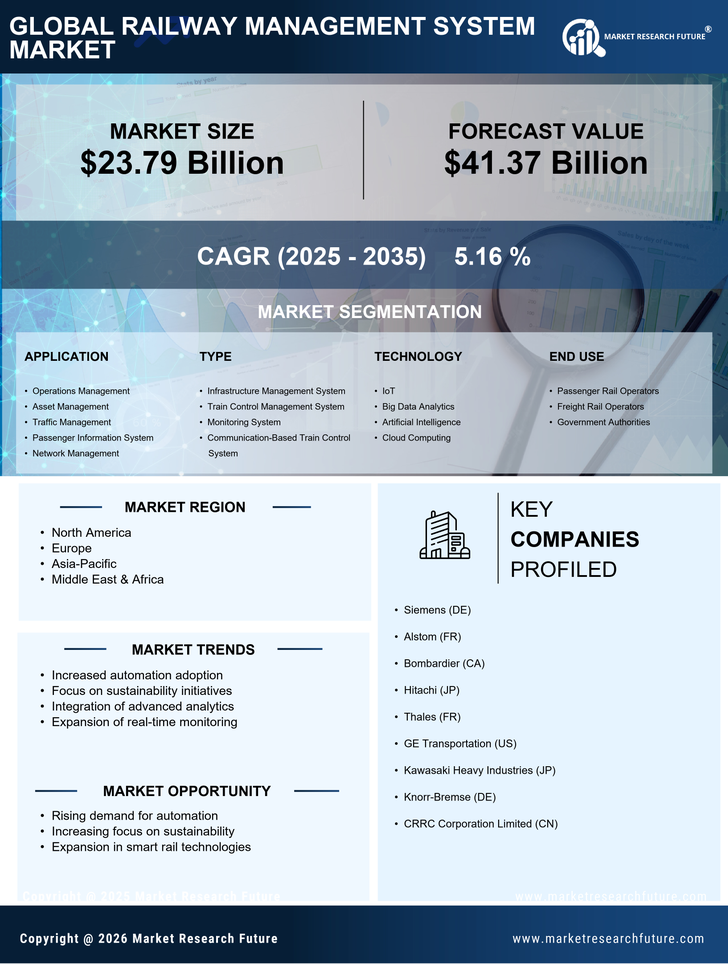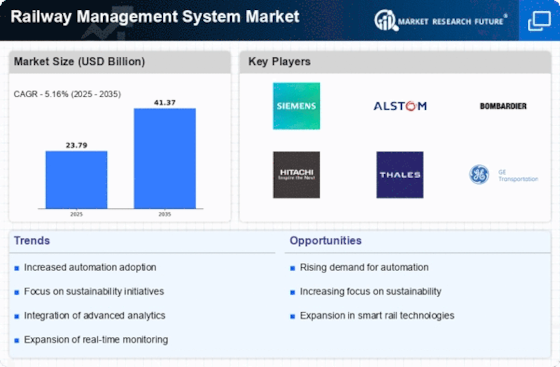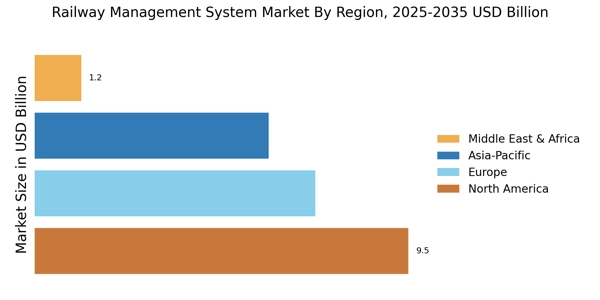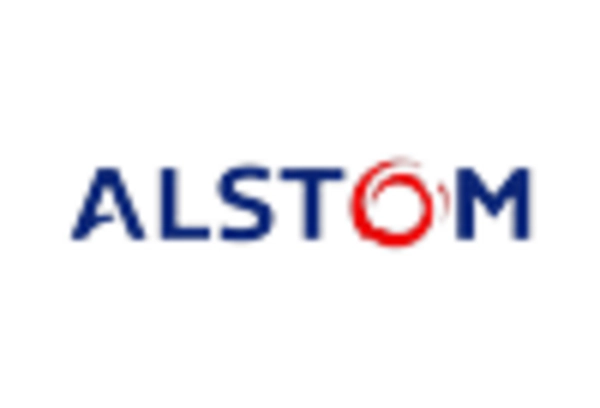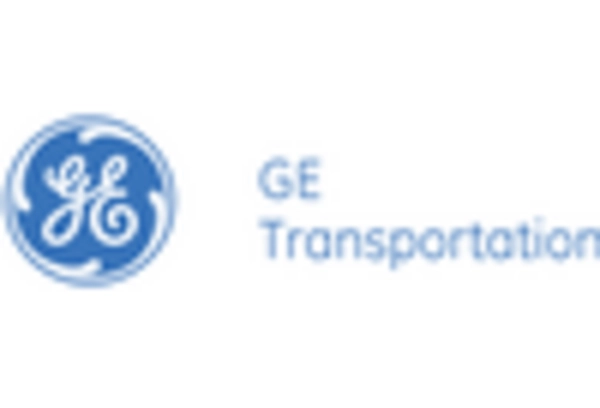Growing Urbanization
The trend of growing urbanization is significantly influencing the Railway Management System Market. As urban populations expand, the demand for efficient public transportation systems, including railways, is increasing. Data suggests that urban areas are projected to house 68% of the world population by 2050, necessitating the development of robust railway networks. This urban growth is likely to drive investments in railway management systems that can handle increased passenger volumes and improve service reliability. Consequently, the Railway Management System Market is expected to evolve, focusing on solutions that cater to the complexities of urban transit and enhance connectivity between urban centers.
Government Investments
Government investments in railway infrastructure are a pivotal driver for the Railway Management System Market. Many countries are allocating substantial budgets to modernize their rail networks, which includes upgrading management systems. For instance, recent reports indicate that investments in railway infrastructure are expected to reach USD 100 billion by 2026. This influx of capital is likely to facilitate the implementation of advanced railway management systems, thereby improving efficiency and safety. Furthermore, government initiatives aimed at promoting public transportation are expected to bolster the demand for sophisticated railway management solutions, as authorities seek to enhance the overall passenger experience and operational reliability.
Environmental Regulations
The Railway Management System Market is increasingly influenced by stringent environmental regulations aimed at reducing carbon emissions. Governments worldwide are promoting sustainable transportation solutions, and railways are seen as a greener alternative to road transport. Recent studies indicate that rail transport emits 45% less carbon dioxide per ton-mile compared to road transport. This environmental advantage is prompting railway operators to invest in management systems that optimize energy consumption and reduce waste. As regulatory frameworks become more rigorous, the Railway Management System Market is expected to adapt by integrating eco-friendly technologies and practices, thereby aligning with global sustainability goals.
Technological Advancements
The Railway Management System Market is experiencing a surge in technological advancements, which are reshaping operational efficiencies. Innovations such as Internet of Things (IoT) and Artificial Intelligence (AI) are being integrated into railway management systems, enhancing predictive maintenance and real-time monitoring. According to recent data, the adoption of AI in railway operations is projected to increase by 25% over the next five years. This trend indicates a shift towards more automated and intelligent systems, which could lead to reduced operational costs and improved safety measures. As railways adopt these technologies, the Railway Management System Market is likely to witness a significant transformation, enabling operators to optimize their resources and enhance service delivery.
Focus on Safety and Security
Safety and security remain paramount in the Railway Management System Market, driving the adoption of advanced management solutions. With increasing passenger numbers, the need for enhanced safety protocols and security measures is more critical than ever. Recent statistics indicate that railway accidents have decreased by 30% in regions that have implemented modern management systems. This trend underscores the importance of investing in technologies that ensure passenger safety, such as real-time monitoring and emergency response systems. As safety regulations become more stringent, the Railway Management System Market is likely to see a rise in demand for comprehensive solutions that prioritize the well-being of passengers and staff alike.
